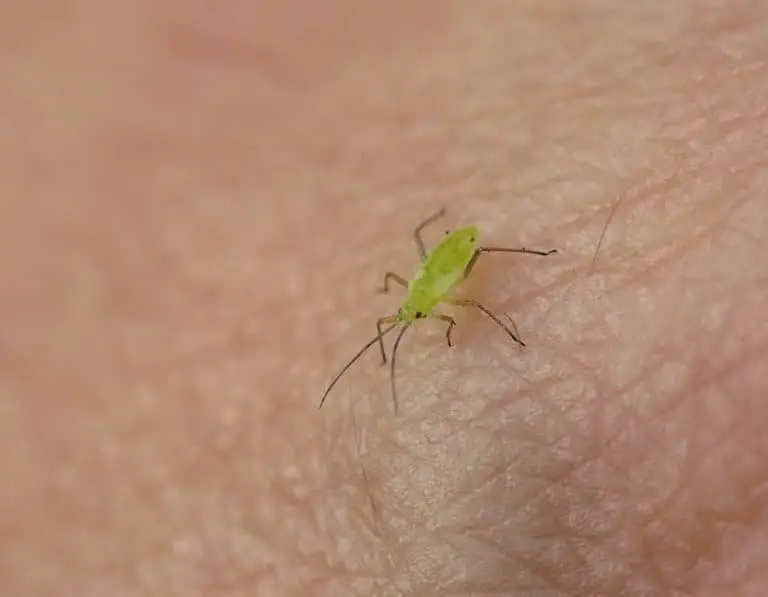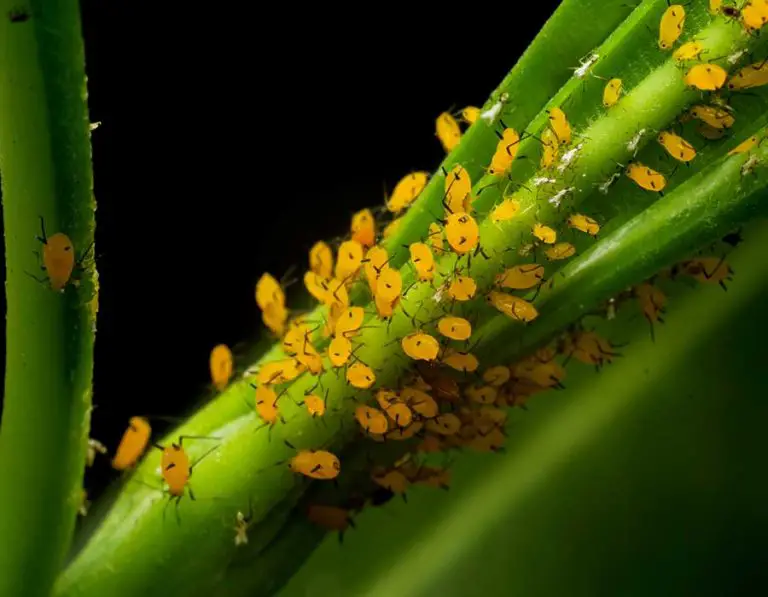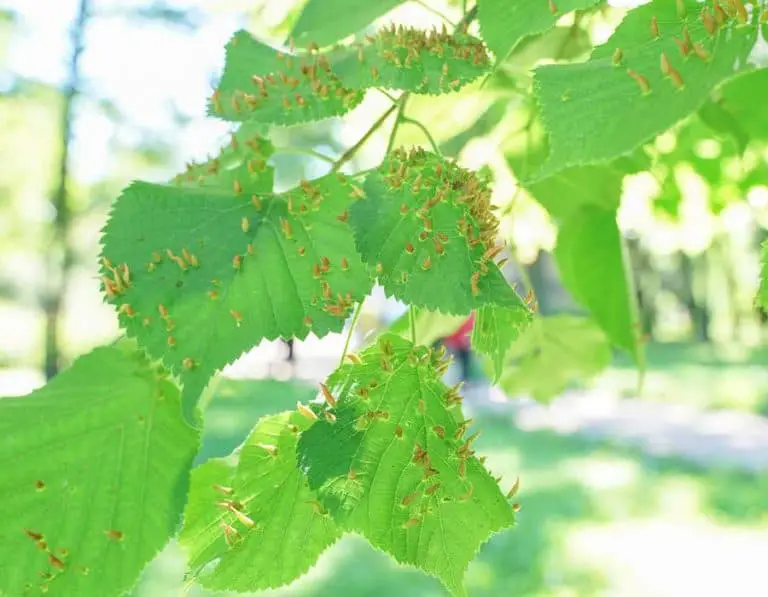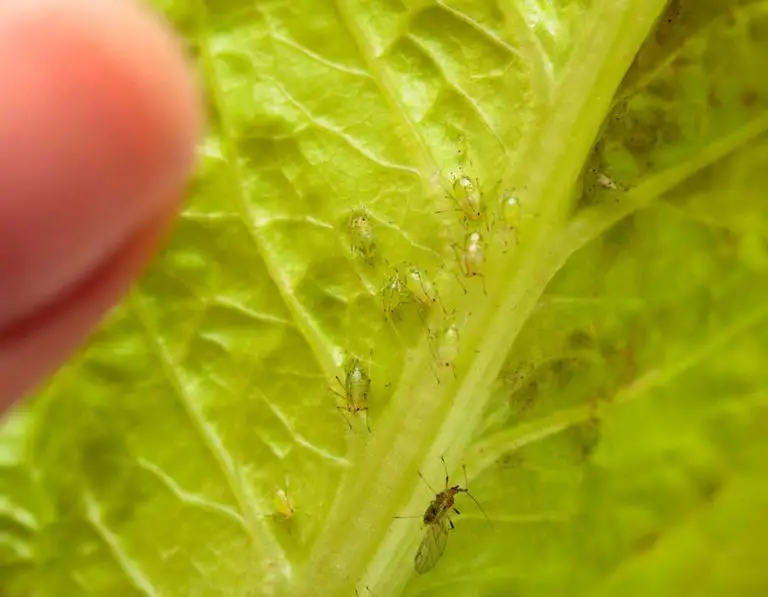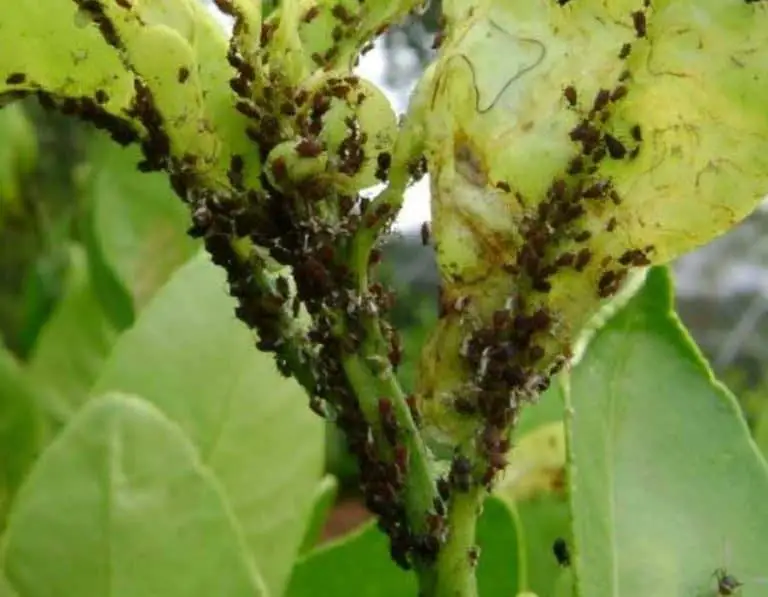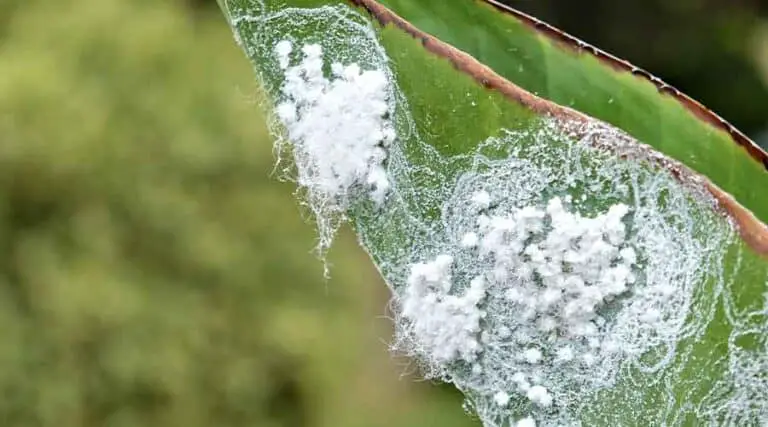Will Sevin Spray Kill Aphids? Effective Control Solutions
As a gardener, I’ve dealt with my fair share of plant pests, and aphids are certainly near the top of this list. These tiny insects can wreak havoc on a wide variety of plants, sucking the life out of them and leaving them weak and susceptible to disease. Naturally, the question arises: can Sevin spray effectively eliminate these pesky invaders from our gardens?
From my experience, Sevin spray is an effective insecticide that can indeed help control aphid infestations. The active ingredient in Sevin products, carbaryl, targets the nervous system of insects, quickly eliminating the aphids attacking our plants. Not only does it work against aphids, but Sevin spray is also efficient in controlling many other unwanted insects in gardens, like beetles, caterpillars, and spider mites.
While Sevin spray can be a useful tool in the battle against aphids, it is essential to remember that it is a chemical pesticide with the potential to harm essential pollinators, like bees, and even pose risks to humans and pets if misused. Always follow the label directions for application and take proper precautions when choosing any chemical pesticide. It’s also crucial to explore additional methods to ensure a comprehensive approach to managing aphids and maintaining a healthy garden.
What Are Aphids?
Aphids are tiny, soft-bodied insects that come in various colors, such as green, black, brown, and sometimes pink. They are also known as plant lice and can be found on many different types of plants. In my experience with aphids, the most common types are the green and black ones.
These insects can reproduce incredibly fast, with females giving birth to live young without mating. As a result, infestations on plants can quickly become serious if the population is not controlled. Aphids feed by piercing the plant’s leaves, stems, and buds, and sucking out its sap. This process can weaken plants, stunt their growth, and even cause them to die.
Aphids also produce a sticky substance called honeydew, which is a waste product of their feeding process. Honeydew can attract other insects, such as ants, and can lead to the growth of sooty mold on the plant’s leaves. The honeydew also encourages a higher population of aphids, making their control even more vital.
In addition to the damage they cause through feeding, aphids can transmit various plant viruses. These viruses can lead to severe damage and even death in some plants, making aphid control essential for maintaining a healthy garden.
A few common types of aphids I’ve encountered include:
- Green Peach Aphid (Myzus persicae)
- Black Bean Aphid (Aphis fabae)
- Cotton Aphid (Aphis gossypii)
- Cabbage Aphid (Brevicoryne brassicae)
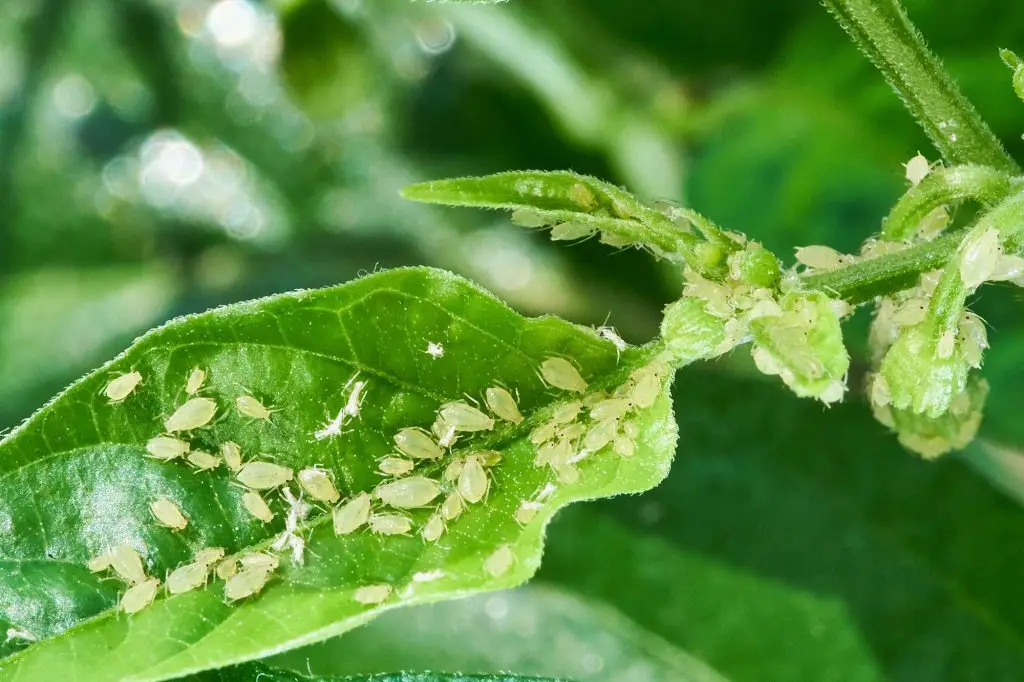
Understanding Sevin Spray
As I delved deeper into understanding Sevin Spray, I found that it is a widely-used and effective insecticide. The active ingredient in Sevin Spray is carbaryl, a powerful chemical that targets pests like aphids. Carbaryl works by interfering with the nervous system of insects, ultimately leading to their death.
While researching the application process, I learned that it’s essential to mix Sevin Spray with water and use a sprayer to evenly distribute the solution on the affected plants. The best time to apply the spray is during cooler temperatures or early in the morning, as direct sunlight can reduce its effectiveness.
Here are a few precautions I came across when using Sevin Spray:
- Always wear protective gear, such as gloves and goggles, when handling the product.
- Keep the spray away from honeybees and other beneficial insects, as it is non-selective and can harm them too.
- Avoid spraying near water sources, as Sevin Spray can be toxic to aquatic life.
- Store in a cool and dry place, away from children and pets.
In my assessment of various user experiences, I noticed that most people found Sevin Spray to be effective in controlling aphids. The recommendation is to monitor the plant for any resurgence of aphids and reapply the spray accordingly.
For a more eco-friendly option, some users recommend trying Neem oil or insecticidal soap before resorting to Sevin Spray. Both of these alternatives have been reported as effective against aphids without the potentially harmful side effects of carbaryl.
Effectiveness of Sevin Spray on Aphids
How It Works
In my experience, Sevin spray, which contains the active ingredient carbaryl, can effectively control aphids on a variety of plants. I’ve found that it works by disrupting the nervous system of the insects, causing paralysis and eventual death. This occurs when aphids come into direct contact with the spray, making Sevin a so-called contact insecticide.
Based on my usage, Sevin spray can impact different stages of aphids’ lifecycle, from nymphs to adults, helping to reduce their populations and protect plants from damage.
Treatment Recommendations
When it comes to applying Sevin spray to manage aphids, I follow these recommendations:
- Timing: The best time to apply Sevin spray is when aphids are first noticed on plants, ensuring the infestation doesn’t become more severe.
- Frequency: I typically reapply the spray every 7-10 days until I observe a significant decrease in the aphid population.
- Application: To increase the effectiveness of Sevin spray, I make sure to cover all plant surfaces thoroughly, including the undersides of leaves where aphids usually congregate.
- Precautions: I always follow the label instructions for proper usage rates and wear personal protective equipment (PPE) during application.
Here are a few additional tips I find helpful:
- Monitor plants for any potential resurgence of aphids, as sometimes secondary infestations can occur.
- Combine the use of Sevin spray with other integrated pest management (IPM) techniques, like introducing beneficial insects such as ladybugs or lacewings, to help reduce the reliance on chemical control methods.
- Avoid spraying Sevin during the flowering period of plants to minimize the potential impact on honeybees and other beneficial insects that can be affected by carbaryl.
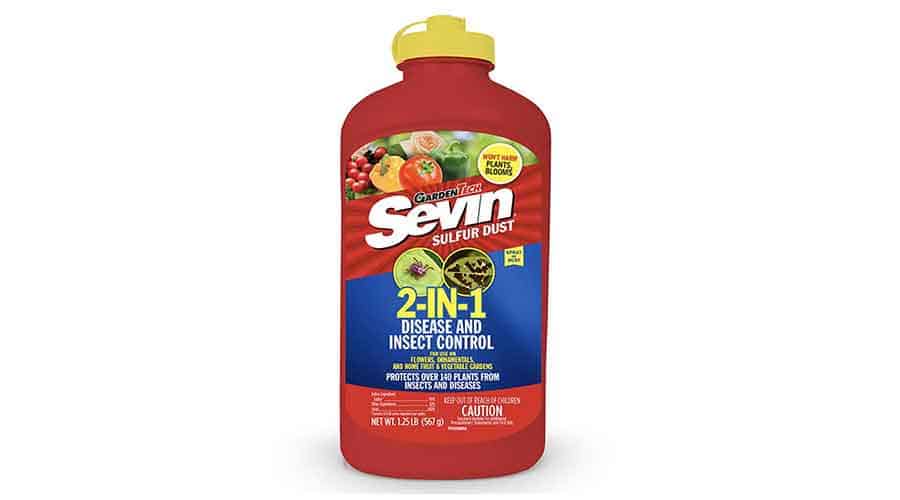
Alternative Methods for Aphid Control
Natural Predators
In my experience, one of the most effective ways to control aphids is by introducing natural predators. Ladybugs, lacewings, and parasitic wasps can all help keep aphid populations in check. By attracting these beneficial insects to your garden, I have found that you can significantly reduce, and sometimes even eliminate, aphid infestations.
To attract these predators to your garden, I recommend planting a variety of flowers, such as marigolds, calendula, and yarrow, which are known to attract these beneficial insects. Additionally, providing a water source like a birdbath can help ensure that they stick around.
Organic Treatments
Aside from natural predators, I have also found success in controlling aphids through organic treatments. One option is using insecticidal soap, which can be made from a mixture of 1% liquid soap and water. This mixture can be applied directly to the aphids and has been effective in my experience.
Another organic treatment that has worked for me is neem oil. Neem oil is a natural pesticide derived from the neem tree and can be applied as a spray to affected plants. Additionally, I have found that diatomaceous earth, a mineral powder derived from fossilized algae, can be sprinkled around the base of plants to create a barrier against aphids and other small insects.
Here’s a quick summary of the organic treatments I have used:
- Insecticidal soap: 1% liquid soap and water mixture
- Neem oil: natural pesticide derived from the neem tree
- Diatomaceous earth: mineral powder derived from fossilized algae
By using a combination of natural predators and organic treatments, I have been successful in controlling aphid populations without resorting to harsh chemical sprays.
Safety Precautions When Using Sevin Spray
Environmental Impact
I always consider the environment when using insecticides like Sevin spray. Although it is effective in controlling aphids, it can also harm beneficial insects such as bees and ladybugs. To minimize the impact, I follow these guidelines:
- Apply the spray at the proper time, preferably in the early morning or late evening when bees are less active.
- Use it only when absolutely necessary and target areas where aphids are most prevalent.
- Make sure not to apply the spray directly onto flowering plants or around known bee nesting sites.
Human and Pet Health
As a gardener, it’s crucial for me to consider the safety of my family, pets, and myself when using Sevin spray. Here are some precautions I take to ensure everyone’s safety:
- Always read and follow the label instructions carefully.
- Wear protective clothing, such as gloves, long sleeves, and pants, to prevent skin contact.
- Avoid breathing in the spray by wearing a mask or respirator.
- Keep children and pets away from the treated area until the spray has dried completely.
- Store the Sevin spray container out of reach of children and pets, in a locked cabinet if possible.
- Wash my hands thoroughly after using the product.
In summary, while Sevin spray can be effective in eliminating aphids, it’s essential to take the proper safety precautions regarding environmental impact, and human and pet health when using it.
Conclusion
After carefully researching and observing the effects of Sevin spray on aphids, I can confidently state that it is an effective solution for controlling these pests. From my experiences, it’s important to apply the spray correctly and at the right time to make sure it works efficiently.
I noticed that Sevin spray not only targets aphids but also other harmful insects, which can be quite beneficial for maintaining the health of my plants. However, it’s worth mentioning that the spray may also affect helpful insects, so careful application is necessary.
In my opinion, using Sevin spray as part of an integrated pest management plan will yield the best results. This approach allows me to combine multiple strategies like cultural, biological, and chemical controls to manage aphids effectively. By doing so, I can minimize the risk of resistance and reduce the impact on the environment.
When considering safety precautions, I always make sure to follow the recommended guidelines and wear proper personal protective equipment. I also store the product in a secure and well-ventilated area away from children and pets.
In summary, Sevin spray has proven to be a valuable tool in my arsenal for dealing with aphids. By using it responsibly and as part of a comprehensive pest management plan, I can ensure the health of my plants and the safety of the surrounding environment.

